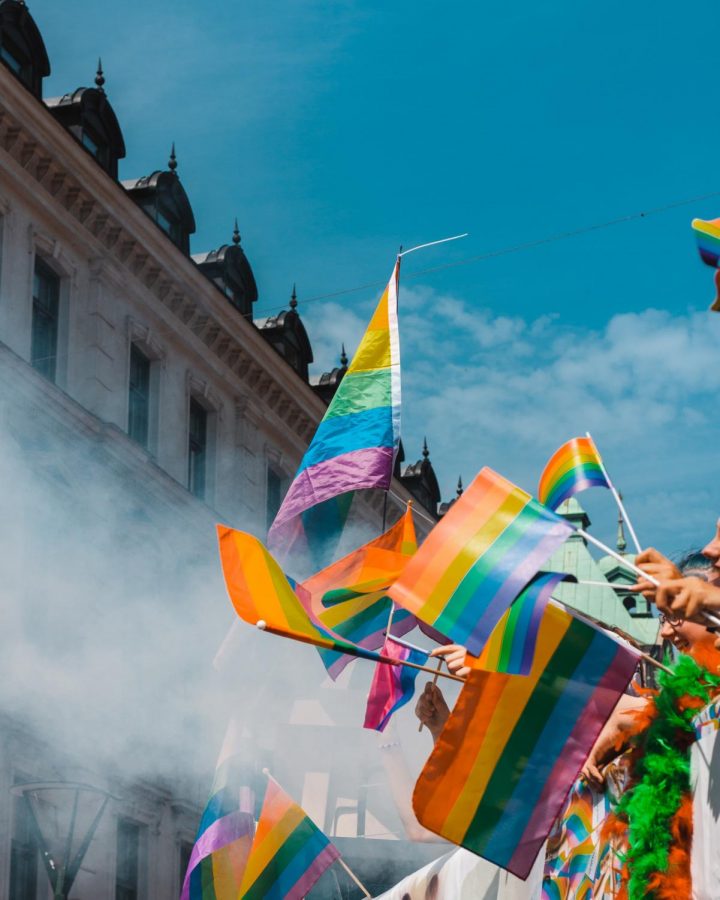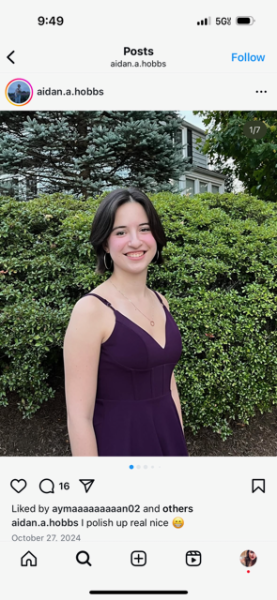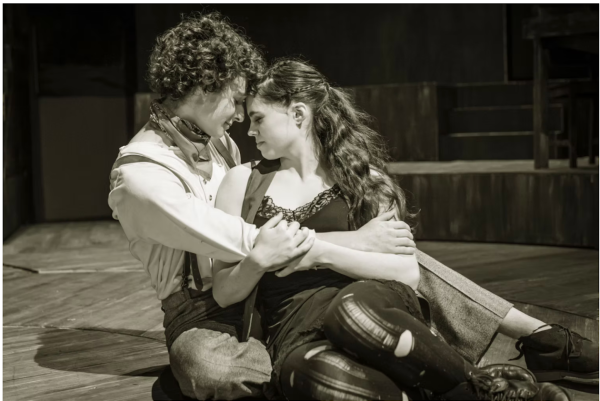LGBTQ students reflect on their experiences growing up in Arlington
Photo courtesy of Teddy Österblom on Unsplash.com
People hold rainbow flags at a pride parade. Last year, both Arlington and Alexandria received a perfect Municipal Equality Index score for LGBTQ inclusion.
Arlington and Alexandria were congratulated in December 2020 for receiving perfect scores from the Human Rights Campaign’s yearly Municipal Equality Index (MEI). The MEI measures how LGBTQ-inclusive cities are in the United States. Virginia itself was one of the four states that made the most progress from 2019. Cities are scored from zero to 100, and scores are based on the types of services, benefits, laws and policies in place for LGBTQ individuals.
Within the school, several students who identify as LGBTQ believe the results mostly mirror their experience of growing up in Arlington.
“[Arlington] is definitely an inclusive, diverse, accepting town,” senior Peyton Fern said. “I think that helps with the fact that no matter who you love, people will accept you, and if they don’t, then that’s not normal here.”
A few students mentioned their counselors and teachers have been great resources when they wanted to speak to someone outside their circle of family and friends. In general, students agreed staying involved with the school community and forming a support system through extracurriculars has been key.
“I would say most, if not all of my activities outside of academics take place within the arts,” senior Mattie Nguyen said. “I obviously have an inherent shared experience with many creative-minded people, and the arts community tends to be more accepting, so I’m grateful to have many people who have a shared experience, and to be able to feel more included.”
In addition to theater, chorus and art, Nguyen participates in Taekwondo and plays recreational basketball. While there has been stigma — and said stigma still exists — surrounding LGBTQ athletes, Nguyen said he has been lucky in finding an inclusive environment in both martial arts and basketball. Nguyen advised all LGBTQ athletes and prospective athletes to have self-confidence.
“If you put yourself out there, you show yourself as a member of the sports community and prove that you’re a good team player and a strong athlete,” Nguyen said. “[Your] sexuality isn’t influencing your ability to perform a sport or to be a member of a team.”
Sophomore Shapiro Schoenbrun is a coxswain for the crew team and said that he has encountered very little — if any — discrimination based on his sexual orientation and gender identity. Schoenbrun identifies as transgender, and believes there is a greater stigma within the media about athletes that have transitioned from male to female rather than the other way around.
“I am part of the team that doesn’t actually do any athletic force; I’m simply a really small person who sits at the end of the boat and screams at people who do,” Schoenbrun said. “[My gender identity] hasn’t really come up in any of the sports I’ve been in. It wouldn’t really give me an advantage or disadvantage compared to other people.”
Students also mentioned a few ways for how their non-LGBTQ friends and family members can serve as better allies.
“It’s the same for basically any other issue affecting people,” Schoenbrun said. “Don’t try to talk over me, thinking you know stuff that you don’t know. By being an ally, you can step back and let other voices be heard and then support people rather than talk over people.”
Nguyen emphasized straying from stereotyping LGBTQ individuals.
“The most important step in making others feel heard and feel identified as a person beyond how they identify sexually, or how they identify in terms of their gender, [is that] you have to be able to see them as an individual,” Nguyen said. “People are defined by more than those identifications.”
Fern sees allyship as a mutual relationship. She hopes her non-LGBTQ friends and family will come to her if they have questions about how they can help, and that they’ll be there for her, just as she’ll be there for them.
“Let’s say that some of your good friends that you’ve gotten to know throughout high school comes out to you,” Fern said. “This does not change [that] person at all. This doesn’t change your relationship with them [or] how you perceive them. [It] should just be like, ‘Oh, this is a new thing about me that I trust you to know,’ and in this case, I also [can] come to you if I need a shoulder to lean on.”
Some students offered suggestions for how the school could be more inclusive in terms of facilities, such as by increasing the number of gender-neutral bathrooms. Arlington Public Schools’ current policy is that all students are free to use the facilities that correspond to their gender identity.
“[Some people] don’t feel comfortable going in either [the male or female bathroom],” Schoenbrun said.
While there is a gender-neutral bathroom available for students in the school, many were unaware of it. The bathroom is located on the first floor in the Activities Office. It was originally for staff, but became available for student use at the start of the 2019-2020 school year.
As for academics, Nguyen says it can be difficult to implement more LGBTQ experiences into the curriculum because there is a risk of overemphasis or sensationalizing. He believes greater exposure to the LGBTQ experience may alleviate some prejudice towards the community.
“Incorporating more [LGBTQ] experiences into literature would be very helpful,” Nguyen said. “In the past, we’ve done a lot of reading on racial prejudice, we’ve done a lot of reading on the immigrant experience, but we really haven’t done reading on the experiences of LGBTQ communities and LGBTQ individuals.”
Overall, while students believe there is always room for improvement in LGBTQ inclusion, they personally have had positive experiences living in Arlington and hope that progress will continue. Fern says the best thing anyone can do is be their authentic self.
“Love who you want to love,” Fern said. “You were born this way, [and] there’s so many other people who want the best for you as well.”










